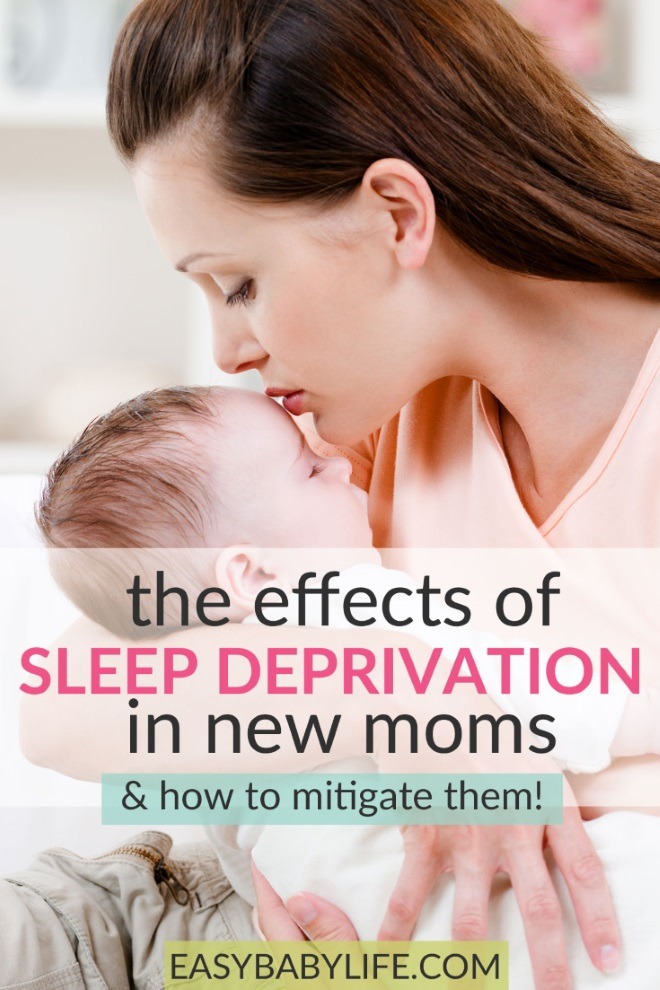 PinDisturbed sleep is part of most new parents’ life. Relatively severe sleep deprivation in new moms and dads is a tough reality with a new baby in the house! But it is very important to try to make the best of the situation.
PinDisturbed sleep is part of most new parents’ life. Relatively severe sleep deprivation in new moms and dads is a tough reality with a new baby in the house! But it is very important to try to make the best of the situation.
Some Swedish researchers at the prominent Karolinska Institutet have found a strong correlation between sleep deprivation, disturbed sleep, and long-term sick leave.
According to the study, prolonged sleep deprivation increases the risk of long-term sick leave by 86%. For people who also feel tired, not just don’t sleep enough, the risk of a long-term sick leave is double compared to people that sleep well and don’t feel tired.
The study pointed out that even disturbed sleep, with waking up many times per night, is a problem. It also indicated that women actually have twice as high a risk as men to be hit by long-term illness sick leave.
Health Effects of Sleep Deprivation In New Moms
Why is there such a strong effect between disturbed sleep and long-term sick leave? Well, because sleep deprivation can lead to some really negative health effect. Here are some of them:
- Impaired coordination
- Blurred vision
- Weakened immune system
- Memory and cognitive impairment
- In the longer term even high blood pressure, heart disease, obesity and more!
This really made me think about sleep deprivation in new moms… The study does show that women are at much higher risk than men to be hit by the negative effects of sleep deprivation. But it says nothing about new moms compared to other women. I wouldn’t be too surprised if separating out new moms would make the rest of all women be more in line with the average man regarding the risks of sick leave.
Being a new mom is extremely exhausting. Some say that moms of newborn babies wake up as much as 150 times per night to check subconsciously on her baby. (She may only remember 6 or 7 times, though.) Add to that – older siblings and other reasons to wake up at night, and you’ll have a disturbed sleep situation that goes on for years.
It is so important to try to get a reasonable amount of sleep despite having a baby or a young child. And just because a baby starts sleeping through the night at some point, there is absolutely no guarantee that he or she will continue doing so.
Actually, most children have periods of separation anxiety, nightmares, illness, growing pains and more…
How To Improve Sleep as a New Mom
OK, so what to do then? According to sleep experts, there are some clear ways to reduce the risk of sleep deprivation. Although I felt that some of the tips given by these sleep experts to avoid sleep deprivation were almost a joke when you are a new mom, some things are actually good to remember to improve the quality of your sleep:
- Go to bed and get up from bed at about the same time every day
- Get up early and don’t sleep too much (well, at least this one won’t be a problem for a new mom…)
- Get a lot of physical activity and daylight
- Make sure your bedroom is dark, quiet and cool
- Don’t agree to do things at home or at work that are too tiresome
- Relax for 2 to 3 hours before you go to bed every night (haha!)
- Get help if you’re exhausted
As you can see, some of this advice is difficult or impossible to follow as a parent, especially with babies or young kids. So make sure you do what you can of the above points and then also add in whatever works of our sleep tips for new moms.
Sleep deprivation in new moms (and dads) is a fact. It is key to take the possible negative effects of it seriously, especially since many parents have this situation for a long time – with more than one child. Do your best to grab some sleep here and there!
Sources: Lack of sleep: When the sandman won’t appear
What’s your experience? Have you noticed any of these effects from your sleep deprivation as a new mom? Or do you have any great sleep tips for fellow moms? Share below.

Paula Dennholt founded Easy Baby Life in 2006 and has been a passionate parenting and pregnancy writer since then. Her parenting approach and writing are based on studies in cognitive-behavioral models and therapy for children and her experience as a mother and stepmother. Life as a parent has convinced her of how crucial it is to put relationships before rules. She strongly believes in positive parenting and a science-based approach.
Paula cooperates with a team of pediatricians who assist in reviewing and writing articles.





